#finwean ladies
Text
Finwëan ladies week, day 1: Míriel and Indis
For @finweanladiesweek
The shuttle moves back and forth, endlessly, with the barest whisper of threads rubbing against threads. The halls of Vairë are silent except for the slight clinking of the not quite solid looms as her handmaidens weave tirelessly the tapestries of time.
Míriel smiles to herself as she works, the pictures springing from her threads of memory a warm glow around her. A little boy runs in a lush garden, barefoot and his tiny embroidered robes messy. A tall man picks him up and starts plucking stray leaves and twigs from the boy’s clothes and hair with a fond smile. Míriel’s eyes are blurry and she wipes a tear from her face before it can fall on the tapestry. She stares in surprise at her hand, almost translucent in this place in between life and death, and she doesn’t know how much time passes.
When she picks her work again the boy, her boy even tough she renounced any claim on him when her fëa left her hröa, is grown. Fëanáro is constantly moving, creating, as if living for two persons at once. Míriel looks over him as he blushes and stutters in front of a fierce red-head who tells him off when he acts like a fool, and she smiles. He reminds her so much of Finwë at times, tough with her creative streak.
Míriel looks over Finwë too, the husband she renounced when the Valar came to her with his request. Her choice had been an easy one, despite the perspective of eternity spent in the Halls. She was stubborn, Míriel, she still is in a way, insisting to weave the tapestries of her son’s life, of Finwë’s life.
She had made for a poor queen, more interested in her craft than the stifling protocol of the court, and she often forgot her functions to work on this project or that. But living in the gilded cage of Aman had emptied her of any inspiration, any passion for her work after some time, and she could not live on her love for Finwë alone. How could she create beauty in a perfect place? The light of the Trees washed everything out, leaving no shadowed corner she could fill with bright floss and neat stitches. Her last and greatest creation had been Fëanáro, her little spirit of fire, and she regrets only he would grow without a mother. And that was why Míriel readily agrees to Finwë and Indis’ wedding.
She weaves this tapestry herself, smiling to see her beloved husband and her oldest friend find happiness together. Finwë, tall and regal in his wedding finery, and Indis radiant at his side, standing in the middle of their friends and family. Indis, her rounded belly heavy with life, and Finwë fretting over her. A new little life born in the Blessed Realms. Míriel weaves all of this, and much more, and her heart becomes heavier as the years passes and strife tears her family appart like a knife tearing through fabric.
Yet Míriel perseveres, stubborn as ever, as the tapestries become darker and darker, marred by death and grief, with streaks of deep red blood. Her ethereal hands shake so badly she has to put her shuttle aside after tying the last thread of Fëanáro’s fiery shroud, and the tapestry is damp with her spectral tears.
***
The halls of Tirion’s palace are grand and filled to the brim with art. There are Fëanáro’s devices exposed on pedestals and Finwë wears only jewellery made by his son. There are plush carpets on the marble floors and gossamer curtains fluttering in the windows and, everywhere, tapestries of landscape so lifelike one thinks them doorways to gardens and faraway places. And each one one these masterpieces speaks of the ghost haunting the palace.
They were friends, long ago, before the Great Journey, and Indis always supported Míriel in her courtship with Finwë, listened to her troubles and nudged her friend toward the man she loved. The man they both loved.
But now Míriel is gone, in this land where death shouldn’t exist, and Indis can see her in every embroidered pillow in the sitting room, each of Finwë’s delicate handkerchiefs, every resentful glare Fëanáro throws at her. Indis is no broideress, and she never thinks of removing these reminders of Míriel’s absence from the palace, even when Finwë told her she can redecorate to her taste. The only thing he removes is the intricate quilt on the large bed of their rooms, made by Míriel to protect her marriage with Finwë. Indis is silently grateful for it, and she does not mind the soft knitted blankets that replace it. The quilt went to Fëanáro when he wed Nerdanel, and Indis never saw him so openly happy and moved in her presence ever again.
It is strange, to live in Míriel’s shadow, tough Indis is glad her friend still lives in the memory of her family. She goes about her life, raises four children with Finwë, feels her heart swell with pride at their accomplishments and, always, feels as if Míriel is watching over her shoulder, her familiar face crinkled with a smile.
And when Indis is left alone in the darkness, she finds comfort in the knowledge Finwë will not be alone in the Halls. And as she cries over the loss of her family, it is as if Míriel is crying along her; two widows, two mothers bereft of their children.
#finweanladiesweek#finwean ladies#tolkien#the silmarillion#míriel#miriel therinde#indis#tolkien fic#long post
10 notes
·
View notes
Link
[SWG link here]
Elenwë is stressed. Luckily, Aredhel knows exactly how to help.
Written for Rhapsody the Bard for the 2013 My Slashy Valentine exchange.
#elenwë/aredhel#elenwe#elenwë#aredhel#irisse#irissë#femslash#my slashy valentine 2013#my slashy valentine#The Silmarillion#Silmarillion fanfiction#silmfic#silmarillion writers' guild#silm fic#silmarillion#finwean ladies#tolkien fanfic#tolkien
0 notes
Text


The last 2 children of Fingolfin and Anaire ! Aredhel and Argon !
#Aredhel is in white and red like Celegorm#because i like parallels#and she has vitiligo#because i get to interpret “white lady of the noldor”#aredhel#argon#fingolfinion#finwean#silmarillion#art#my art#digital art#tolkien#elves
304 notes
·
View notes
Text
Finwean Ladies Week @finweanladiesweek | Aredhel & Galadriel
It was not that the only daughters of the sons of Finwe misliked each other.
It was difficult to mislike Artanis - with her it was either adoration or loathing, and few dared to loathe her. She had many friends, many partisans and followers among the noble maidens and young apprentices of the Noldor.
Always there was a new matter of study that held her in utmost passion, always she held herself apart, high-minded and bright-eyed. Neither of them were easy to tame , though from the beginning Nerwen was alive to the importance of light, refraction, reflections and symbols - went about it in clear sight of their people, with her mind always to the eyes on her, the words spoken, the wills to be mastered and hearts to be guided.
In the impetuous days of her youth, when all things left her impatient, and there were not enough moments between Minglings for all her projects and studies, the fire of her spirit burned fiercely from its own kindling. She preferred none so well as her brothers, and among them Finderáto, who was in her eyes as an older and gentler and paler shade to her power and foresight.
And as for Írissë - No creature was as strange to Artanis as her girl-cousin, born and raised in tandem with herself and so unlike herself.
Fierce and deliberate and in love with the most esoteric mysteries of the hunt and the wandering trances, Írissë perfected the art of walking through cities and forests undetected to avoid being perceivable, and kept to the wild places as much as she could; she had no wish to be known.
She made no displays, cared little for competitions. That which she sought was a less defined mastery. Her studies was no lesser, but stranger and altogether indifferent to laboratories and pulpits.
Artanis was keen of eye, even then, eager to see where others would not. She knew when her almost-sister grew so wise to the arts of patient stillness and encompassing existence, that time itself seems to bend a little to her. The reality of things lost its edge, had its sharpness bent just enough that she might move through them undetected
Most often, Írissë found freedom in the woods and high cliffs, riding wildly deep in Aman or walking the deep forests where few Eldar have dared to tread. The White Lady, her cousins called her, for her great skill in hiding from the world, making herself indistinguishable from even in the darkest groves and caves, wearing the brightest of clothes as a dare, and a boast: no one would see her that she did not wish to be seen, no prey could escape her relentless hunt.
Artanis alone ran as swiftly as she did, and guessed at the mysteries of her wanderings; Artanis alone could find her, when she did not wish to be found. In days to come, long after their youth, she would think on that - she might have found Aredhel, perhaps, where none could.
They spoke little to each other; but long after Aredhel was bones under stone, and the stone sank into the salted sea, Galadriel walked in her hidden domain through the long nights and felt the keen-edge of longing for a great darkness, a more perfect concealment, the hunter’s challenge of a flash of white amidst the silver and gold.
73 notes
·
View notes
Text
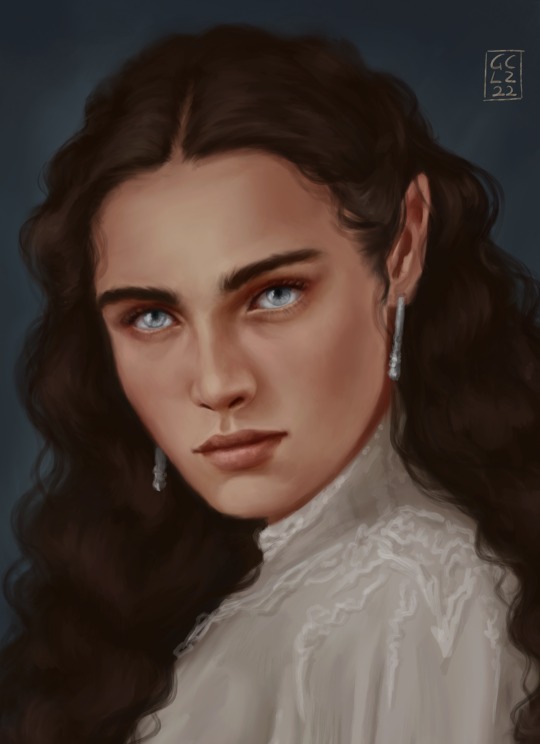
Aredhel Ar-Feiniel, the White Lady of the Noldor!
You have to respect a badass good girl! She's the one who rode with Celegorm and Curufin, crossed the Helcaraxe, told Turgon "I'm gonna go where I want and you can't stop me!", ditched 3 of the most skilled lords in a dark forest, managed to cross said dark forest without a scratch and then got hitched. And she took a javelin to the shoulder and would have shrugged it off.
#aredhel#aredhel ar feiniel#white lady of the noldor#nolofinweans#finweans#silmarillionart#silmarillion#tolkien elves#those are maeglin's eyes#did i meantion she's awesome?
879 notes
·
View notes
Text

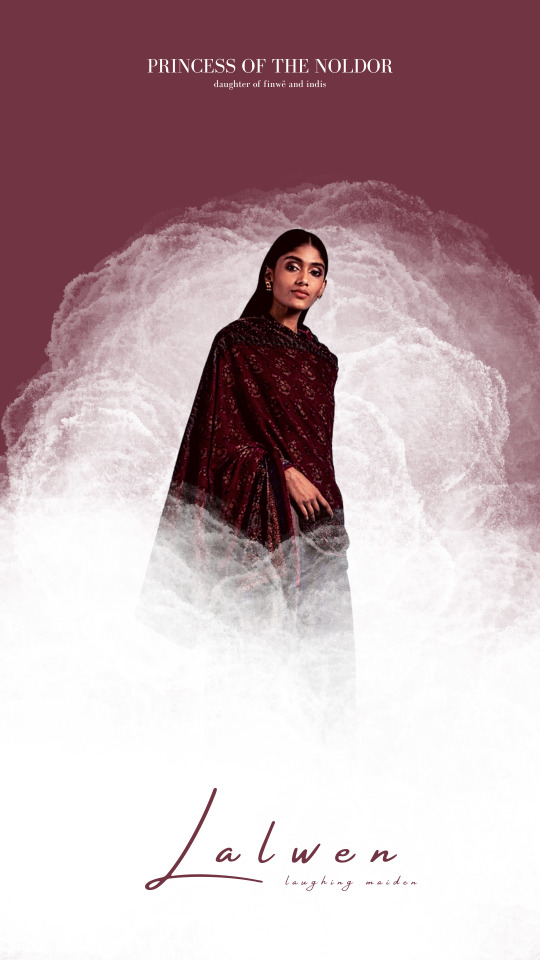
findis and lalwen · princesses of the noldor
#tuserosie#userindomiel#userlyndeth#usertoi#userhaleths#tolkiensource#oneringnet#findis#lalwen#irime lalwen#finweans#tolkien#silmarillion#silmedit#tolkienedit#tolkien ladies#mepoc#my edit#✨ mine#this was an experiment for an edit I've planned for second age week#but i thought it looked nice so I'm posting it anyways :D
99 notes
·
View notes
Text



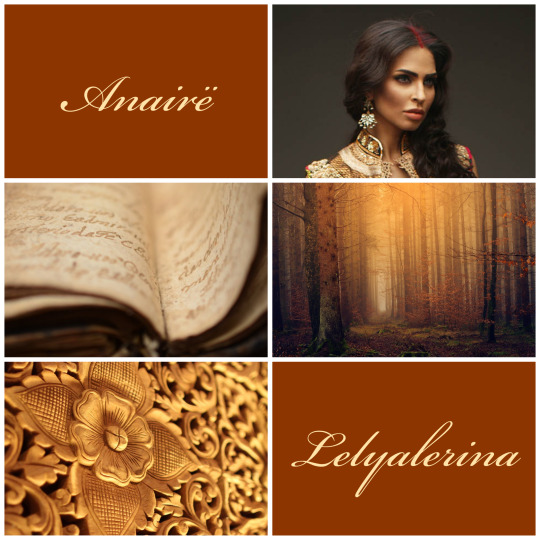


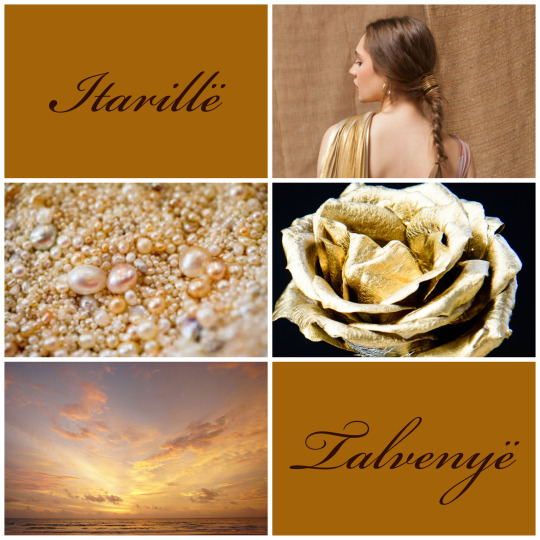
Finwëans: The Queens of the Noldor
2/7
Míriel, who was called Serindë, because of her surpassing skill in weaving and needlework; for her hands were more skilled to fineness than any hands even among the Noldor. Míriel was the only crowned High Queen of the United Noldor.
Indis, close kin of Ingwë the High King, golden-haired and tall, who bore the name Fëastel for her deliverance of nearly three score elves captured by Melkor ere elves ever arrived in Aman, wedded Finwë after Míriel's death. To appease Míriel's son Fëanor, Indis was never named High Queen of the Noldor.
Nerdanel also was firm of will, but more patient than her husband Fëanor, desiring to understand minds rather than to master them, and at first she restrained him when the fire of his heart grew too hot; but his later deeds grieved her, and they became estranged. She never wore the crown of a Noldor Queen, for her husband was crowned King only after their estrangement.
Fingolfin's wife Anairë ruled Tirion beside her husband after Fëanor's banishment to Formenos by the Valar, but refused to leave Aman after the Darkening, largely because of her friendship with Eärwen wife of Arafinwë. All her children went with their father.
Finarfin wedded Eärwen, the daughter of King Olwë, and his children were thus the kin of King Elwe; Eärwen gave to her children a love of the sea and dreams of far lands that they had never seen. When Finarfin returned to Tirion and begged for mercy from the Valar for the First Kinslaying, Eärwen accepted his pleas and ruled by his side as High Queen of the Noldor in Aman for many long Ages of the world.
Elenwë perished in the crossing of the Ice; and Turgon was thereafter unappeasable in his enmity for Feanor and his sons. When Turgon inherited the throne of High King of the Noldor from his brother Fingon, he insisted that his wife be named High Queen beside him though she had passed more than four centuries earlier.
But fairer than all the wonders of Gondolin was Idril, Turgon’s daughter, she that was called Celebrindal, the Silver-foot, whose hair was as the gold of Laurelin before the coming of Melkor. The first and only independent Queen of the Noldor, Idril ruled over the Havens of Sirion and Arvernien until her cousin Gil-galad came of age and became High King.
Women of the Elves 12/?, Finwean edits 2/7
#whoooooo okay tags#miriel#indis#nerdanel#anaire#earwen#elenwe#idril#silmarillion#tolkien ladies#women of the elves#my edits#post miriel none of them are crowned high queen :((#the story of the noldor is a story of tragedy i GUESS#finwean edits
59 notes
·
View notes
Text
Wrote a Lalwen/Círdan fic for day two of @finweanladiesweek ; Lalwen and Findis (even if I am a day late). I originally posted the idea is this rambling post.
#eli writes#the silmarillion#the silm#Lalwen#irime lalwen#lalwendë#cirdan#círdan#Lalwen/ Círdan#I love the ship okay#silm fic#silmarillion fanfiction#silmarillion fic#finweans#finwean ladies week#Lalwen my beloved
3 notes
·
View notes
Photo

Tindomiel
Morning Star they called you
The perfect daughter to herald in
A new age full of possibility
The star of the land
To go with the stars in your eyes.
Did you ever see your mirror image
The Evening Star
The lady who chose to taste
The bittersweet cup of mourning
And passed so quietly
In a decayed dream in the dark
Long ago in Cerin Amroth
But before she took those steps
Turning away from the grey mists
Of Valinor
Did you reach out to her, Tindomiel
Or did you hear her laugh
When you danced among the nightingales
Silk dress billowing in the eve
At the dawn of a golden age?
Morning Star. Evening Star.
Two daughters from different times.
21 notes
·
View notes
Note
Finwëan Ladies Ask game: Finduilas, 1 (before vs after after the events of the Leithian, and how she relates to other Finwëans in Valinor after return8ng from the Halls), 9, 12
Also, when do you think she was born (Valinor or after) and what do you think her mother is like?
I'm gonna answer these a little out of order, since my answer to the last question pretty heavily impacts my answer to the first.
16. Wild card: either ask me a question that's not on here or let me ramble. Up to you.
I go with the idea that her mother is Sindarin, so I definitely think she was born in Beleriand, and is actually pretty young for most of the events of the Silmarillion (by elf standards), though definitely an adult by the time the Dagor Bragollach rolls around.
As for her mother's personality, I've never really settled on anything, but I do think she would be light-hearted and adventurous, kind of rounding out Orodreth's more serious and anxious personality.
What's her general attitude towards the Finwean Family Drama?
Oooh... the before and after Leithian part is very juicy, I think. Generally, I think of her (and Orodreth, to some extent) as being kind of detached from all the insanity of her extended family. Finrod is dealing with most of the between-kings diplomacy, with Orodreth under him, and Finduilas not actively involved in any of the politics. But then the Dagor Bragollach happens, Morgoth lays siege to Minas Tirith, and she's uprooted from the home she's known for most if not all of her life and sent to Nargothrond around the same time as Celegorm and Curufin. Finrod is a) distracted with grieving his brothers and much of the House of Beor for quite a while after the Bragollach, and b) pretty polite and trying to keep family fights to a minimum afterwards. So Finduilas knows there's this kind of tension, but she kind of follows Finrod's lead and politely ignores it.
AFTER Finrod's death though... that would all change very quickly. I actually happen to headcanon that Finduilas and Finrod became very close after she and Orodreth end up in Nargothrond, but I hadn't even considered the extra angst that would be added this period in her life. In light of that, I think she would actually come to loathe the Feanorions, or at least the Oath, afterward. She would be very firmly entrenched on one side in the drama, even though she never got a chance to really participate.
9. Personal headcanons about her that contradict the popular ideas within the fandom (if any)?
I actually don't know much about the fandom perceives her. I feel like she gets overlooked a lot. I have a lot of opinions about her (probably bc she's an Arafinwean). Probably the most radical headcanon I have about her is that she's not a particularly passive, damsel-in-distress type. in fact, I think she's just the opposite. I think she's very stubborn, headstrong, independent, and very much in control of her own life. She was just caught up in a lot of events that were very much beyond her ability to control.
12. What's her reputation among the general populace?
Highly depends on who you're talking to. There are people who have never seen her in any capacity besides a formal, official one, who kind of assume she's very put-together and demure and controlled. There are refugees from Minas Tirith during its siege that were under her leadership and know her as strong and confident and kind and thoughtful. There are people those who live and work near or in whatever lodging the royal family of Nargothrond had who know her as all the same things as the refugees but also stubborn and gentle and very family-oriented.
#i looked at a timeline to see around when she might be born#and ended up realizing that the bragollach the siege of minas tirith the leithian and the lay of the children of hurin#all happen within FORTY YEARS of each other#relatively short time for an elf#and she loses her home her (great-) uncle her fiance her ex-fiance AGAIN her unrequited love her father her second home and her own life#all in the span of forty years#finduilas#aj's finwean ladies ask game
18 notes
·
View notes
Text
Finwean ladies week 1: Indis
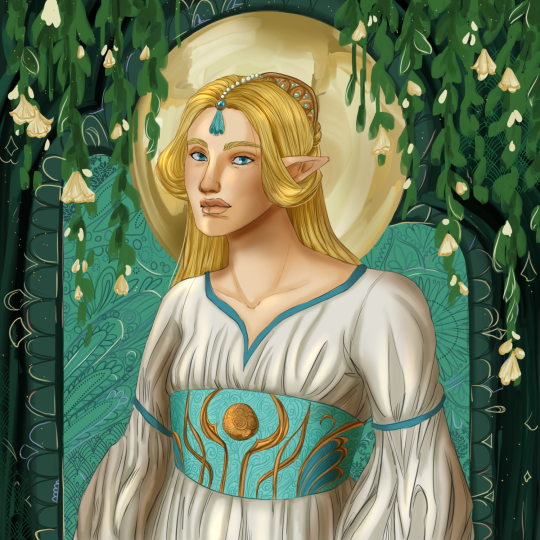
I’ve always wanted to draw each day of this event ! AND THIS IS THE YEAR !!!
Be ready for a lot of elven ladies <3
@finweanladiesweek
#indis#finwean ladies week#silmarillion#lotr#silm art#tolkien#art#my art#elf#valinor#digital art#silm#tolkien art
108 notes
·
View notes
Photo



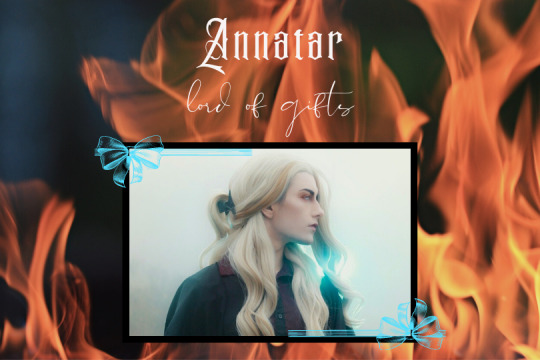
elves of arda ✷ house of finwë ✷ headcanon disclaimer
Tyelperinquar was the only son of Curufinwë Atarinkë and Quildalótië Ñillendil, and the third to bear the name Curufinwë as an ataressë. Tyelperinquar’s birth was a greatly celebrated event that brought his father’s slowly-fracturing family back together for a time, and he was doted on by all his uncles and most of all his grandfather Fëanáro. His mother named him Tyelperinquar for her foresight of his skill as a silversmith, and this was the name by which he was known.
Though his early childhood was a happy one, the House of Finwë was divided by the lies of Melkor, and before he came of age Tyelperinquar followed his father and grandfather into exile at Formenos. Tyelperinquar excelled in his craft as a smith, making his family proud, but he was distinctly marked by the tensions of the last of the Years of the Trees. When the Two Trees were killed and Valinórë fell into Darkness, Tyelperinquar was swept up in the chaos of the Flight of the Noldor, and marched with his kin toward Middle-earth.
His mother Quildalótië begged her husband to allow their son to remain in Aman, but Curufinwë refused her, insisting that their son was now old enough to choose which parent he would follow. Quildalótië protested that Tyelperinquar had not quite reached his first coming of age, but her little Tyelpë hero-worshipped his father and grandfather and insisted on accompanying them into exile, as Curufinwë had known he would. In grief and rage, Quildalótië turned back, while Tyelperinquar and Curufinwë followed Fëanáro further into exile.
However bitter he was over his wife’s betrayal, Curufinwë remained a protective father, and ensured that Tyelperinquar did not swear the dreadful Oath he and his brothers bound themselves to in Fëanáro’s example, and that he stayed out of the Kinslaying at Alqualondë. Yet both he and Tyelperinquar lit the stolen swan-ships aflame at Losgar, damning their half-kin across the Sea to crawl back to Tirion in disgrace—or else attempt to cross the impassable Helcaraxë. Alone of Fëanáro’s host only Tyelperinquar’s eldest uncle Nelyafinwë stood aside for love of his dear Findekáno, son of Nolofinwë, earning the wrath of Fëanáro.
But soon even Fëanáro met his match, perishing in a battle against the Enemy’s servants, and Tyelperinquar watched in horror as the indomitable figure of his grandfather burned to ash before his eyes. Then Nelyafinwë was taken captive by the Enemy, leaving his brothers to be led by Kánafinwë, unsuited as he was to the task. Shaken by the violence and death of this new land, Tyelperinquar retreated into the newly-built forges, making weapons alongside his father and grieving his family’s many losses.
Upon the miraculous and unlooked-for arrival of the second host of the Noldor led by Nolofinwë, Kánafinwë at last allowed his brothers to pressure him into officially accepting the title of High King. On the very day Kánafinwë was to be crowned, young Tyelperinquar could not bear to be present for the grim ceremony, and so it was he who witnessed an impossible sight approaching: his uncle Nelyafinwë, bent and disfigured but nonetheless living and walking toward him with the aid of Findekáno, who had saved him from his torment against all odds. Before the crown could be placed upon Kánafinwë’s head, Tyelperinquar burst inside crying out that Nelyafinwë had returned, and the Sons of Fëanáro were at last reunited.
The kingship then passed to Nolofinwë, and Nelyafinwë, now known as Maedhros, led his brothers to new lands in the east. Tyelperinquar followed his father Curufinwë and his uncle Tyelkormo to Himlad, and over the years of the Long Peace he grew into a noble elf, taking the name Celebrimbor in the Grey-elven tongue and refining his skills in silvercraft, ring-lore, and much else besides. He accompanied his father to the dwarven cities of Belegost and Nogrod, attending a conference of smiths and learning their sacred language of Khuzdul. In this time also he accepted a commission from Maedhros his uncle to set the Green Stone of Fëanor into a necklace, creating the first incarnation of the Elessar.
In the wake of the Sudden Flame, Himlad fell, and Celebrimbor fled with Celegorm and Curufin to the halls of Nargothrond where their cousin Finrod Felagund ruled. Finrod was a gracious host, and quickly won Celebrimbor’s friendship, but his father and uncle schemed to undermine Finrod’s rule. Celebrimbor grew more and more estranged from his family at this time, uncomfortable with their plotting and dismayed by the grip their Oath had upon their hearts. When the mortal Beren arrived seeking Finrod’s aid in his quest to retrieve a Silmaril from Morgoth’s crown, Curufin and Celebrimbor turned Nargothrond against its king; but when news of Finrod’s death arrived some weeks later, his nephew Orodreth seized control of his people once more and cast out the Sons of Fëanor. At this time, Celebrimbor son of Curufin repudiated his father’s deeds and remained under the protection of Orodreth his friend, now King of Nargothrond.
Celebrimbor remained in Nargothrond until its fall, making weapons for Gwindor’s company to use in the Fifth Battle and reforging the blade Anglachel into Gurthang. When at last Morgoth’s armies destroyed the hidden city, Celebrimbor was among those refugees who fled with Queen Amathluin to the Havens of Sirion. In only a matter of years, dark tidings reached the river mouths of a Second Kinslaying: the Sons of Fëanor had turned their blades against their fellow elves again, and in the carnage at Doriath, Celegorm and Caranthir and Curufin were slain. Celebrimbor hid his grief for his father and uncles, retreating deeper into his craft and mourning those he once had loved.
Throughout the War of Wrath, Celebrimbor quietly aided the armies of Gil-galad, though he rarely entered the battlefield himself. He did not make himself known to his kinsfolk Elrond and Elros, foster-sons of his only remaining uncles, until after Morgoth’s fall and the final despair of Fëanor’s sons. Celebrimbor chose then not to return to Valinor, instead taking hope in a world without the Enemy and pledging to create a community of joy and creation far from the shadows of Thangorodrim. Thus he followed Gil-galad to Lindon as Beleriand sank beneath the waves, and in the Second Age of Middle-earth he founded the country of Eregion alongside his kinswoman Galadriel and her husband Celeborn.
In Eregion, Celebrimbor gathered many extraordinary craftspeople around him, establishing the guild of the Gwaith-i-Mírdain, and together they created wonders not seen since the days of Fëanor his grandfather. Despite its name, the city of Ost-in-Edhil where they were located was a thriving metropolis not only of elves, but also of dwarves and mortal men. Celebrimbor’s knowledge of Khuzdul and great skill endeared him to the dwarves of Khazad-dûm, with whom he forged an unprecedented friendship.
The dwarf Narvi was a particular friend of Celebrimbor, his closest collaborator and dearest companion. Together they created many astonishing works of mithril and jewels, but their greatest achievement was the Doors of Durin on the west-gate of Khazad-dûm. Narvi crafted the doors out of a grey material stronger than stone, and they were inlaid by Celebrimbor with ithildin. Upon the doors were inscribed maker’s marks, the initials of Celebrimbor, Narvi, and Durin the King, as well as the eight-rayed Star of Fëanor which Celebrimbor had reclaimed for himself, and the password to enter the mountain kingdom: Speak ‘friend’ and enter, in honor of the love the elves and dwarves bore one another at this time.
Greater love was between Narvi and Celebrimbor than most knew, for they were at times bedfellows, though neither were inclined to exchange wedding vows. Secret to all was their greatest collaboration: a child born to Narvi, though she kept her daughter’s paternity to herself. This was Thyra, whom Celebrimbor named Maltahurin or Maldholen, for she was a precious secret he would protect with his life. Not until after Narvi’s passing did Thyra discover she was the daughter of an elf, and her relationship with Celebrimbor was tense—especially as a new figure entered her father’s life.
Annatar Aulendil came to Lindon, declaring himself a Maia of Aulë and a high smith come to impart his wisdom to the elves of Middle-earth. Suspicious of his motives, Gil-galad turned him away, but Celebrimbor was interested in Annatar’s offers and gifts and allowed him entry into Ost-in-Edhil. Despite the warnings of Gil-galad and Galadriel, Celebrimbor befriended Annatar, letting him into his heart as he had done no other, not even Narvi. With Annatar as a guide, the Gwaith-i-Mírdain reached the height of their skill and power, but Galadriel found herself ever more unwelcome in her own city, and thus departed with her daughter for Lothlórien.
Celebrimbor and Annatar soon embarked on their most ambitious project yet: forging Rings of Power that would preserve and enhance elven lands and powers. At this time Thyra had her last quarrel with her father over Annatar’s place in his life, and when Celebrimbor refused to listen she departed to live among her mother’s people in Khazad-dûm. Though offended by his family’s distrust of his beloved Annatar, as the Rings neared completion Celebrimbor began to notice certain oddities around his companion, and too late grew to suspect treachery. In secret he crafted three great elven-rings, keeping them separate from those rings intended for Men and dwarves, and when Annatar crafted the Ruling Ring and revealed his true identity as the Dark Lord Sauron, Celebrimbor’s darkest fears were confirmed.
Attempting to scatter their creations before Sauron could seize them all, Celebrimbor gave a Ring of Power to Durin III and one each to the dwarven-kings of the Blue Mountains. But only those three were secreted away by the time Sauron attacked Eregion, locking Ost-in-Edhil in a siege. For two years Celebrimbor and the Gwaith-i-Mírdain resisted, but even with the aid of Elrond, the city fell and its lord was taken captive. Sauron delighted in tormenting Celebrimbor, reminding him of how little their love and friendship of old meant to him, and tortured him into revealing the locations of the remaining Rings of Power intended for dwarves and Men.
But Celebrimbor would not reveal what Sauron wanted most: the whereabouts of the three elven-rings untouched by his evil hand. Before Eregion’s fall, Celebrimbor had delivered them in secret to the most trusted and powerful among the Wise, giving Nenya the Ring of Water to Galadriel, who counseled him to send the other two to Gil-galad in Lindon. So great was Sauron’s fury in Celebrimbor’s refusal to break that at last he slew him cruelly and put his body upon a pike to use as a war-banner against the host of Elrond, who still resisted his tyranny in Eregion.
Eventually, the Men of Númenor would ally with the elves and oust Sauron from the west of Middle-earth, forcing him back to Mordor. Yet Sauron would recover the four hidden dwarf-rings and the nine Rings of Men, using them to corrupt the dwarven clans and bend wicked Men to his evil purposes. With his One Ring he would control them all—save for Celebrimbor’s Three, which remained beyond his reach. The Three would defend the elves for another Age, and Celebrimbor’s legacy would endure though his kingdom did not.
Thyra Maldholen remembered her father for as long as she lived, which was long indeed by the reckoning of the dwarves. Ever apart from her people, she devoted herself to her craft above all else and swore to protect her kindred from Sauron’s will. It was Thyra who counseled the Doors of Durin to be closed against the armies of the Enemy, and Thyra who stood firm as Durin’s Bane erupted from the mines of Khazad-dûm, buying time for many dwarves to escape the mountains and flee east to establish new homes. She died in a blaze of glory, and chose to be counted among the dwarves, dwelling as a spirit in the Halls of Aulë until the remaking of the world.
Celebrimbor’s spirit, once healed from its torments, was permitted to visit the dwarven halls to reconcile with Narvi and Thyra. After the final downfall of Sauron and the dawn of the Fourth Age, he was at last re-embodied in Aman, where he reunited with his mother and grandmother and began to forge friendships old and new.
#tolkienedit#oneringnet#silm#silmarillion#celebrimbor#narvi#oc thyra#oc thyra maldholen#thyra maldholen#annatar#sauron#my edit#edit writing#headcanons#tefain nin#elves of arda#house of finwe#finweans#*noldor#LISTEN dwarf ladies deserve Big Beards but do you know how hard it is to find good pix of bearded women????#thus narvi is someone's cosplay and thyra is...well...shes half an elf ok#long post
49 notes
·
View notes
Text
@finweanladiesweek | day one. miriel/indis
in the last year of miriel's life as she counted her life, the one before she grew heavy with child, the noldor had been the ones to host the competitions.
miriel remembered it only vaguely now, through a summer's haze - the bright clarions ringing, the pressing irritation of setting aside the project she had been working on in exchange for the hot light of laurelin and the duties of state - the deep satisfaction of seeing her own banners flying boldly, her husband clad by the work of her own hand.
after death, and in the time before death, she forgot about it all - the colour of the fabrics, the words spoken in praise and adoration to the valar upholding the celebration.
of the last days lived in shadowless felicity, miriel remembered best the minyar's youngest champion, the best and first of their begotten children born in aman.
tall and graceful and very swift, wrestling quendi twice her size in the games, distinguished among the rest of the golden-haired plenty of valmar only for how she laughed at the finishing line, when she won victory for her people or otherwise.
that was what miriel recalled: indis of the vanyar, dust-spotted and freckled, tall and dangerous and joyful, throwing the flowers of her success at the embroidered slippers of the queen of tirion.
finwë had been all for his friends then, turned towards ingwë's clasping hand and olwë's counsel, sitting away and above, so thickly wound together elu's absence was not an absence at all. other athletes had honoured the three kings already, offering their hard-won laurel crowns.
these flowers were for miriel alone, gathered beforehand, the sort of generosity that would become a gesture of friendship, a queenly offering, merely because indis was dust-spotted, tall and dangerous and kind.
osmantus, jasmine, the purple violets that grew upon taniquentil - miriel had had to bend down to pick them up. she remembered that, very clearly - the petals crinkling between her reaching fingers, the sweetness of indis' smile.
the robes she bore were among the best she had produced so far, as fair as the gauzy guise vána donned for the occasion, a glory of the noldor wore about her body in much the same way as tirion was dressed in its banners. the violets had stained them irreversibly.
she might have loathed someone for that, once.
enclosed in the halls of mandos, weary even as a shade and wearied of nothing so much as herself, miriel sought back their sweetness instead. there was little else to do. the perfumes of lórien and the proud, blooming lilies finwë had brought for her rooms during her weakness had grown to be so much ugliness to her.
miriel shed them all, along with her flesh. the smell of joy had become the laughing solemnity of indis vanyarin, to whom she had never spoken; and that much she wished to have as a memory.
finwë's choice never did surprise her; serindë would have chosen so herself, if life had been something she were willing to carry.
#finwean ladies week#miriel#indis#finwe#miriel/indis#míriel serinde#the silm fic#the silmarillion#tolkien fanfiction
40 notes
·
View notes
Text
I feel like Írimë, Húroselyë, and Írissë would be a frightening power together when they all meet in Valinor.
1 note
·
View note
Text



@finweanladiesweek day ii -Irime Lalwen
#finweanladiesweek#tuserosie#userlyndeth#userindomiel#lalwen#irime lalwen#finweans#house of finwe#tolkien#silmarillion#silm#silmedit#tolkienedit#tolkien ladies#mepoc#my edit#✨ mine
61 notes
·
View notes